Recently one of rock & roll’s great mysteries was solved, which will be noted after the jump …..
Thirty years ago last April, a notorious shooting took place that took the life of noted musician, arranger and producer Felix Pappalardi at only age 43. And it came at the hands of his wife, who received a lenient sentence and disappeared afterwards, never to be heard from until recently (which will be recounted later). But unless you were a rock fan in the late 60’s/early 1970’s, you may not know the name (much less the career) of Felix Pappalardi … for which tonight’s Top Comments will attempt to remedy the situation.
————————————————————————————————-
Born in the Bronx, New York in 1939 to a doctor father (who was a talented amateur violinist), Felix Pappalardi attended NYC’s High School of Music and Art (studying piano and viola). After graduation, he attended the University of Michigan to train to be a classical music conductor.
Alas, returning home in the early 60’s he found no work … instead, settling-into the burgeoning folk music scene of New York’s Greenwich Village. Yet his musical training would stand him in good stead: he could write and read music, was a skilled arranger of the work of others and was at least proficient at a number of musical instruments (keyboards, bass, viola, trumpet, even the ukulele) so he could find session work. And while in college, he was exposed to the blues at the University of Michigan Folklore Society. All of this led to a career as a producer at various studios, including Elektra, Vanguard and Atlantic.
First, though, he did spend time in a band I had no idea he was involved with. Max Morath’s Original Rag Quartet – which revived Scott Joplin ragtime music from 1964-1965 – toured the following year on the college circuit and even performed four times on the Dinah Shore show .
During this time, it was in Greenwich Village that he met his future wife Gail Collins – no, not the present-day NY Time essayist – who was a poet and artist. She also knew music theory, which later helped in collaborations with Felix.
Among the folk music recording artists for whom he worked as either a session player, or arranger or producer – and sometimes all three – were Tim Hardin, Fred Neil, Joan Baez, Tom Paxton, John Sebastian, Richard & Mimi Farina, Ian & Sylvia plus Cass Elliott. He also produced the first album by The Youngbloods (of “Get Together” fame) as the music scene began to change away from folk music towards rock by 1966. Yet it was his next project that first made Felix Pappalardi into a music legend.
For those of us who came to love the blues-rock band Cream – it is worth wondering whether their short (1966-1968) life would have been memorable had they not encountered Felix. Whereas most rock bands consisted of childhood friends or acquaintances (the Beatles, Stones, Who, Beach Boys, et al), Cream is considered the first rock supergroup – of musicians who had already made a name for themselves (especially in the UK).
Eric Clapton had been a member of the Yardbirds and John Mayall’s band, drummer Ginger Baker a longtime member of pioneering British R&B bandleader Graham Bond’s Organisation, along with bassist/vocalist Jack Bruce (who had also starred with Manfred Mann). Yet their excellent debut album Fresh Cream suffered from poor recording, and their manager Robert Stigwood sent them across-the-pond to New York in early 1967 to record at Atlantic Records (which had just invested a good deal of capital into cutting-edge recording technology). In part, this was because Atlantic’s Atco was to be the US label for the band (since Stigwood’s Reaction label was solely UK-based).
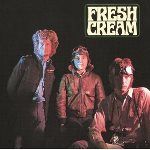
They were assigned recording engineer Tom Dowd – who had worked on the Manhattan Project in his college days – yet the initial session was awkward. Dowd would go on to become a Rock & Roll Hall of Fame inductee for his work as producer (including on Eric Clapton’s solo albums). But in early 1967, he was more used to working with jazz and folk acts, not rockers with loud equipment and over-sized drum sets. Moreover, he and Atlantic president Ahmet Ertegun were used to a bandleader/sidemen arrangement – not a balanced trio (with the explosive drum sounds of Ginger Baker) to deal with as a recording engineer.
Fortunately, Felix Pappalardi was at Atlantic Records that day, hoping to meet them (as he had been blown away after purchasing Fresh Cream on an import label). And he told Ahmet Ertegun, “I know what these guys are about” and asked if he could work with them.
The result was the landmark album Disraeli Gears – whose title, by the way, came from a roadie’s malaprop in discussing a racing bicycle’s derailleur gears – and thus Felix and Tom Dowd (L-to-R in photo right below) came to be known as the 4th and 5th members of Cream, trusted by the band members fully.


To fill-out the album, he borrowed from the blues classic Hey Lawdy Mama – and his wife Gail came up with new lyrics to create the song Strange Brew …. Felix & Gail also wrote the music/lyrics to another song on the album World of Pain – which references a tree on MacDougal Alley (in their Greenwich Village backyard).
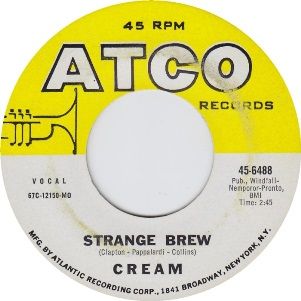
Felix went on to produce their final two albums, including Wheels of Fire – the first double-platinum LP in music history, and my favorite of all time – and produced bassist Jack Bruce’s first solo album in 1969. Shortly thereafter, Felix and Gail married in May of that year.
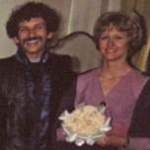
Meanwhile, Felix had produced an album by a band called The Vagrants in 1968. Their guitarist (born Lawrence Weinstein) had received a Fender Stratocaster as a Bar Mitzvah present …. and later adopted Leslie West as a stage name.
The Vagrants did not succeed, but the following year Leslie West recorded a solo album entitled Mountain – using Felix Pappalardi as a producer/sideman once again. It became a critical success, and West asked Pappalardi if he would become his bassist – and decided to adopt the solo album’s title Mountain as the name for the new band itself. Along with drummer Corky Laing and keyboard player Steve Knight, Mountain achieved some success quickly – made famous by their appearance at Woodstock, only their fourth concert.
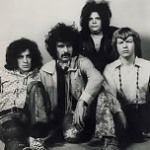
In 1970 they had their one Top 20 hit with Mississippi Queen – which you can still hear on classic rock stations today – and is possibly the world’s only song Christopher Walken might not insist “needs more cowbell”. By the way: that famous cowbell intro came about when Felix asked drummer Corky Laing simply to count-off … and when he (randomly) selected the cowbell, it became the song’s hook.
They lasted from 1969-1972, breaking-up for two years (while Jack Bruce joined-up with two members to form the short-lived West, Bruce & Laing band) and reunited from 1974-75, before finally disbanding for good. Keyboard player Steve Knight later became involved with local politics in Woodstock, New York before his death last year at the age of 77.
During the band’s existence, Felix and Gail contributed several songs (with he as composer, and she as lyricist) – among these are “The Laird”, Nantucket Sleighride, “For Yasgur’s Farm” and a tribute to the (then recently deceased) Jimi Hendrix, “Tired Angels”. Their collaboration continued in his post-Mountain career as well. She also tapped into her artistic background, creating the art for the band’s album covers.



Felix retired from active touring, as the result of some hearing loss from his large on-stage Sunn bass amplifiers. Returning to producing, he produced the late 70’s Japanese band Creation – and also released a 1979 solo album (utilizing more funk, reggae and jazz than blues and rock) along with session greats Chuck Rainey and Bernard Purdie. But his drug use began to escalate into the 1980’s, which began to exact a strain not only on himself, but also on his home life.
Felix and Gail had long had a rock & roll open marriage – with each partaking of extra-marital relationships. But in 1982, Felix began seeing an aspiring singer (much younger than Gail) named Valerie Merians, and Gail believed it was not merely a physical relationship (telling her in-laws that December she feared their marriage was in jeopardy).
Long after midnight on April 17, 1983 she confronted Felix after he had returned from a visit to his lover’s home. She later claimed that he was teaching her how to use the .38 Derringer revolver he had bought for her (as a present, some months earlier) when the gun went off accidentally, mortally wounding Felix (at only age 43).
Yet the first phone call she placed was to … her attorney, who advised her to call an ambulance, instead. Police found Pappalardi dead, along with a shredded copy of the couple’s marriage certificate in a wastebasket.
At her trial in 1985, several witnesses testified to her having carried that pistol for months on-end … but she testified in her own defense, and the turning point of the trial came when the prosecutor brought her the revolver, screaming “I can’t touch that!”
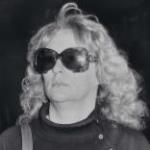
And that was cited by jurors when they rejected second-degree murder charges and convicted her of criminally negligent homicide, punishable by only a four-year sentence. Felix’s band mate Leslie West later suggested that rock stars buy their wives “diamond rings, flowers, candy … just not a gun”.
Judge James Leff was openly scornful of the verdict, rejecting pleas for mercy by saying the jury had already granted mercy and sentenced her to the maximum four years. She served only two years before being granted parole, and when she disappeared after release in 1987, her whereabouts were often noted in lists of Rock & Roll unsolved mysteries.
That is, until word surfaced last month of her death – at age 72 – in the mountain resort town of Ajijic, Mexico. She had led the life of a recluse (other than her three cats) living off music royalties she had earned from earlier work as well as some more recent artwork. Neighbors described her as brilliant yet ‘opinionated’ and were upset that she left instructions for her veterinarian to euthanize her three cats so their ashes could be mixed with hers.
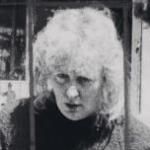
Guitar Player magazine once described the wide-ranging body of work left by Felix Pappalardi as that of a “giant among giants” and Leslie West told an interviewer, “I couldn’t believe how talented Felix was musically”. Today a solo performer, West mentioned that when they first met, “I knew nothing … I learned a lot of what not to do because of him, and I learned a lot of what to do because of him”. Felix Pappalardi was laid to rest next to his mother in Woodlawn Cemetery, in his native Bronx, New York.
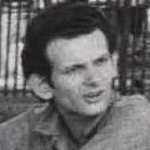


I thought I might highlight two songs from his career. One was a song written by Felix and Gail, which concerns a legend from their beloved vacation getaway of Nantucket, Massachusetts. One Last Cold Kiss is about two swans and given what happened in their marriage the lyrics seem ….. well, somewhat incongruous. The song has – interestingly – become a favorite of Irish (and Irish-American) musicians, including tenor John McDermott, Christy Moore and Luka Bloom. (Having seen The Chieftains perform the other night, I half-expected to hear it from them, too). Below you can hear Felix Pappalardi sing it with Mountain.
Two island swans, mated for their lives
And his faithful heart would not consider any other wife
For three years peaceful joy midst the rushes of the pond
Proud and gentle was the loving of the last two island swans‘Til a dread day in November when the searing cold did start
Stalked a hunter with his bow and put an arrow through her heart
“Husband come to my side, let your feathers warm my pain
For I fear I will not share another day with you again”Of swans the people talk of, only one in this day’s tide
Though they brought him twenty ladies, he would take no other bride
They say he will not move from the place where she did fall
Once so proud he’s beaten now and he will not rise at allAnd the cold winds blow
He was brave, but he’s laid low
By her body in the isle of mist
I saw him give her one last cold kiss, one last cold kiss
The other is a song not written by Felix – but one that he produced (and later performed with Mountain). Cream bassist Jack Bruce wrote (with his lyricist Pete Brown) the ballad Theme for an Imaginary Western – ostensibly about the American pioneers heading west in wagons, but which was metaphorically a salute to the pioneering British R&B and blues musicians of the early 1960’s (such as Alexis Korner, Cyril Davies and Graham Bond).
It was rejected by Jack Bruce’s bandmates in Cream, but one that he recorded on his 1969 solo album Songs for a Tailor which was produced by Felix Pappalardi. The album’s curious title was dedicated to the American-born fashion designer Jeannie Franklyn – who designed many of Jack’s on-stage outfits (and who died in a car crash with several members of Fairport Convention).
It is a staple of Jack Bruce concerts to this day – as it was for Mountain (and which Leslie West also performs today) – and Jack Bruce has dedicated this song on-stage to Felix Pappalardi, noting their friendship and how Felix “was able to get the best out of people without putting his own stamp on it”.
And below you can hear Felix sing it with Mountain.
When the wagons leave the city
for the forest and further on
Painted wagons of the morning
dusty roads where they have gone
Sometimes travelling through the darkness
met the summer coming home
Fallen faces by the wayside
it looked as if they might have knownOh, the sun was in their eyes
and the desert that dries
In the country town
where the laughter sounds
2 comments